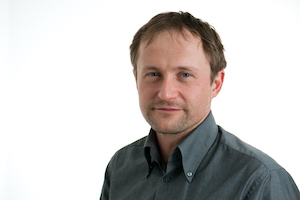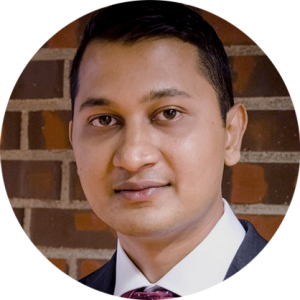Björn Thór Jónsson, Associate Professor
IT University of Copenhagen, Denmark & Reykjavik University, Iceland
02.03.2020 | 10.00 | S.2.42
Abstract:
Scalable retrieval of high-dimensional feature vectors is an important component of many applications in multimedia and other fields, but also a very challenging problem. In this talk, we discuss the challenges of high-dimensional indexing at scale, and then present two approximate indexing methods designed for large-scale retrieval. We present results from experiments with the two largest feature collections reported in the literature, 28.5 billion SIFT features on a single server and 42.9 billion SIFT features in a distributed setting, and demonstrate an application with interactive retrieval over the 99.2 million images of the YFCC100M collection.
CV:
Björn Þór Jónsson is an Associate Professor at the IT University of Copenhagen, Denmark, and Reykjavík University, Iceland. Björn works in the broad field of Multimedia Analytics, applying multi-dimensional analysis concepts and techniques to large-scale multimedia collections. 
Previously, Björn studied scalability of multimedia retrieval, where he was involved with the two largest feature vector collections reported in the literature. Björn has a special interest in promoting demonstrations, live events, and reproducibility, e.g. serving as Reproducibility Chair for ACM Multimedia 2019 and 2020. He served as general co-chair for MMM 2017 and CBMI 2019, and will co-organize ACM ICMR 2020 and SISAP 2020.



 Lebenslauf: Studium des Gymnasiallehramts (2008) und Diplommathematik (2009), Promotion zum Dr. phil (2014) an der Universität Bielefeld 2014, seit 2015 Juniorprofessur für Didaktik der Mathematik an der Universität Osnabrück, 2018 Habilitationsäquivalenz durch positive Evaluation, Arbeitsgebiete: Analyse mathematischer Lernprozesse aus multimodaler Perspektive; Bedeutung von Gesten, Notizen und Mitschriften für mathematikbezogene Lern- und Kommunikationsprozesse, Grundvorstellungen mathematischer Inhalte (insbes. im Bereich der Trigonometrie), Übergang Schule-Hochschule, Mathematik und digitale Medien.
Lebenslauf: Studium des Gymnasiallehramts (2008) und Diplommathematik (2009), Promotion zum Dr. phil (2014) an der Universität Bielefeld 2014, seit 2015 Juniorprofessur für Didaktik der Mathematik an der Universität Osnabrück, 2018 Habilitationsäquivalenz durch positive Evaluation, Arbeitsgebiete: Analyse mathematischer Lernprozesse aus multimodaler Perspektive; Bedeutung von Gesten, Notizen und Mitschriften für mathematikbezogene Lern- und Kommunikationsprozesse, Grundvorstellungen mathematischer Inhalte (insbes. im Bereich der Trigonometrie), Übergang Schule-Hochschule, Mathematik und digitale Medien. CV: Dr. Raimund Schatz is Senior Scientist at the AIT Austrian Institute of Technology, Center for Technology Experience, where he coordinates the Research Field „Experience Measurement“. Furthermore, he is Post-Doctoral researcher at the ATHENA Christian-Doppler Laboratory (ITEC, AAU). Until 2015 he was Key Researcher and Area Manager at the Telecommunications Research Center Vienna, Department of User-centered Interaction, Services, and Systems Quality. Raimund Schatz holds an Msc. in Telematics (TU-Graz), a PhD in Informatics (TU-Vienna), as well as an MBA and an MSc. from Open University Business School (UK). He is (co-)author of more than 130 publications in the areas of Quality of Experience, Service Quality, HCI and Pervasive Computing. Furthermore, he is or was actively involved in a number of QoE and HCI-related EU projects and networking activities, including SHOTPROS (H2020), Optiband (FP7), CELTIC QuEEN and COST Actions IC1003 Qualinet and IC1304 ACROSS, as well as the organization of various QoE-related conferences and workshops (e.g. QoENAM 2014, QoE-FI 2016, QCMAN 2016, QoE-Management 2017, QoMEX 2018, QoMEX 2019, etc.).
CV: Dr. Raimund Schatz is Senior Scientist at the AIT Austrian Institute of Technology, Center for Technology Experience, where he coordinates the Research Field „Experience Measurement“. Furthermore, he is Post-Doctoral researcher at the ATHENA Christian-Doppler Laboratory (ITEC, AAU). Until 2015 he was Key Researcher and Area Manager at the Telecommunications Research Center Vienna, Department of User-centered Interaction, Services, and Systems Quality. Raimund Schatz holds an Msc. in Telematics (TU-Graz), a PhD in Informatics (TU-Vienna), as well as an MBA and an MSc. from Open University Business School (UK). He is (co-)author of more than 130 publications in the areas of Quality of Experience, Service Quality, HCI and Pervasive Computing. Furthermore, he is or was actively involved in a number of QoE and HCI-related EU projects and networking activities, including SHOTPROS (H2020), Optiband (FP7), CELTIC QuEEN and COST Actions IC1003 Qualinet and IC1304 ACROSS, as well as the organization of various QoE-related conferences and workshops (e.g. QoENAM 2014, QoE-FI 2016, QCMAN 2016, QoE-Management 2017, QoMEX 2018, QoMEX 2019, etc.).

